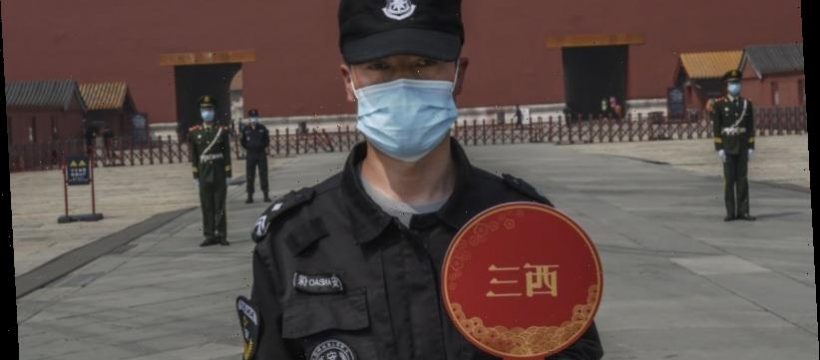The budget forecasts tell the tale. Eight of Australia’s top 10 trading partners are expected to see a contraction in economic growth in 2020. China and Taiwan are the only exceptions.
The global economic massacre is laid out line by line in budget paper number one. India and Europe down by 9 per cent, Japan almost 6 per cent, the US 5.5 per cent. The world down 4.5 per cent. China? Up by 1.75 per cent.
Australia's dependence on China for economic growth is well known, but never has it been so starkly illustrated. The country where the coronavirus was first detected is now the sole major economy showing genuine signs of recovery. For that it needs Australian iron ore to make steel and build infrastructure.
The budget assumes a price of $US55 a tonne. It's currently at $US120, driven by supply restrictions on Brazilian iron ore and rampaging demand from China. The difference between the two prices? $47 billion, or almost twice the cost of the government's full personal income tax package between 2020 and 2022.
It's not just mining. It's food and merchandise, students and tourists. On all counts, China is Australia's number one market. Australia has been very good at doing business with China and very bad at diversifying.
That leaves it exposed. For all the federal budget's domestic stimulus, it is notable how little it focuses on initiatives outside Australia's borders.
The third largest item in the Foreign Affairs expenditure is $25 million to make sure prospective arrangements between state and territory governments and foreign governments (read: China) are consistent with Australian foreign policy. That is a domestic initiative delivered through a globally-focussed department.
A Chinese guard wears a protective mask as he stands at the entrance to Beijing’s Forbidden City. Credit:Getty Images
The second largest is $62.6 million over four years to support the Comprehensive Strategic Partnership with India. While diversifying to India is a sensible step, the reality is increasing trade with India faces intractable obstacles at the best of times.
India is forecast to rebound to 9 per cent growth by 2021 but high subsidies and political whiplash from agriculture lobbies dominated domestic politics and trade deals even before the coronavirus. The budget notes severe supply-chain disruption and labour market dislocation are now endemic.
There is a bonus $6.6 million to encourage exporters to diversify into other areas including the European Union and the United Kingdom, but even this will come out of the existing Department of Foreign Affairs account which has already had to cut 60 jobs to meet its operations budget.
The only reasonable reading of this budget is that Australia is content with the trading status quo: China will drive our economy ever further. That is problematic as the events of the past year have shown.
Without genuine attempts at diversification, it leaves that other Australian national interest vulnerable to economic coercion: regional security.
There was a taste of it in the budget. A $304.7 million boost to support Pacific Island countries and Timor-Leste to recover from the impacts of COVID-19, but little else. Australia's allies, including the US and Japan, will be concerned there was nothing for south-east Asia, where China's influence is surging.
The revelation that a US-funded, Australian-equipped naval base in Cambodia had been demolished is timely. China has funded expansion works at the base, raising concerns it will use the facility for access to the South China Sea from the Gulf of Thailand.
The government will rightly say it is spending an extra $270 billion on defence, but this misses the nuance of diplomacy that Australia is increasingly being asked to play by its allies in the region.
Prime Minister Scott Morrison on Wednesday welcomed comments by China’s former ambassador to Australia Fu Ying after she called for renewed dialogue following more than a year of escalating tensions.
"I'll take any encouragement because it is important for Australia," he told Sky News.
Indeed it is. And it is possible that the status quo will continue, but it's also possible that it won't.
Tuesday's budget does little for diplomatic flexibility.
Most Viewed in World
Source: Read Full Article

